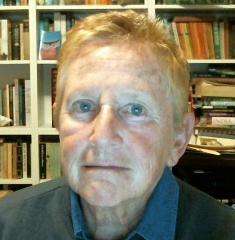Bendigo is a gold rush city 150km northwest of Melbourne, putting in a bid here to become the Bayreuth of Australia. This first night of a complete production of Wagner’s Der Ring des Nibelungen, the first of three cycles, took place in the Ulumbarra Theatre created out of a 19th-century gaol, boasting a large stage by Australian standards, complete with fly tower and all the trappings. The five-week long event includes a raft of side concerts, talks, masterclasses, gala dinners and local tours. But all this would fall by the wayside without compelling performances at its centre and, on the evidence of this first night, that seems ensured.
Melbourne Opera has already given staged performances of Das Rheingold and Die Walküre and a concert performance of Siegfried in Melbourne from 2021, powering on through the lockdown years. Apart from English conductor Anthony Negus, the productions have been notable for relying on the talents of Australian singers and crew, although the cast is not entirely the same here as first time around. Whether the Melbourne Opera Orchestra is consistent across that time I have no idea, but they played cohesively under Negus, and their timing was impeccable, maintaining dramatic tension throughout. The horns were pretty wayward however; I quite thought I was at a Baroque concert during the prelude and a couple of other times.
Director Suzanne Chaundy has, like Elke Neidhardt in the brilliant Adelaide Ring of 2004, opted for a clear narrative structure in a timeless setting rather than any over-arching Konzept. Andrew Bailey's fairly simple but effective set features a large platform with a central circular cutout which is raised and lowered at different points, creating when raised a portal through which different vistas are displayed, and when lowered a layered effect and access to a deeper realm, i.e. Nibelheim. Before the start we are regaled with a scrim featuring a blue watery projection, behind which, with the opening bars, we see a pair of female figures in diaphanous floaty white swaying alarmingly about on poles high above the stage. The actual singing Rhinemaidens, however, were reassuringly earthbound, and Rebecca Rashleigh, Naomi Flatman and Karen Van Spall blended nicely in the parts.
The gods and goddesses are clearly distinguished, an unmistakeable one-eyed, bearded Wotan, Fricka in a rams-horn headdress and blue gown, Freia in pink and gold, Loge in a red and black striped suit and a pork-pie hat, temporarily embellished with the golden Tarnkappe and a silvery Donner. Much of the action, such as the descent to Nibelheim and the crossing of the rainbow bridge, is left to the music to illustrate, assisted by adroit lighting. Alberich’s transformations to dragon, then toad, are accomplished by almost literally smoke and mirrors. Erda’s dramatic entrance is enhanced by an outsize projection of her face within the circular portal behind the action.
Surtitles above the stage displayed an old-fashioned English translation referring to “nixies”, while side titles displayed this above the German text – I haven’t seen that before in Australia. This belt-and-braces approach was hardly necessary given the narrative clarity and the dramatic chops of the cast, although there is a lot of exposition in the text (Wagner doesn’t leave a lot of ambiguity in the story or relationships).
The singing was of a generally high order, led by Warwick Fyfe’s magisterial Wotan, a long way from his last seen (but equally effective) appearance as Bottom. He suggested a boss god genuinely challenged by the magnitude of the decisions demanded of him, and it will be interesting to see how this develops through the succeeding operas. Simon Meadows reprised his Alberich, singing strongly as a particularly rebarbative figure, beyond grimy with stringy hair and baggy overalls. After snaring the gold, he is just as grimy, even if now decked out in gold trim. Steven Gallop was a particularly resonant Fafner, and James Egglestone’s ringing tenor enhanced his lively Loge. Robert Macfarlane was an entertaining Mime, and Deborah Humble a warmly toned authoritative Erda. The only weakish link was Jason Wasley’s Froh, but Sarah Sweeting (Fricka), Lee Abrahmsen (Freia), Darren Jeffrey’s Fasolt and Christopher Tonkin’s Donner all made their mark.




